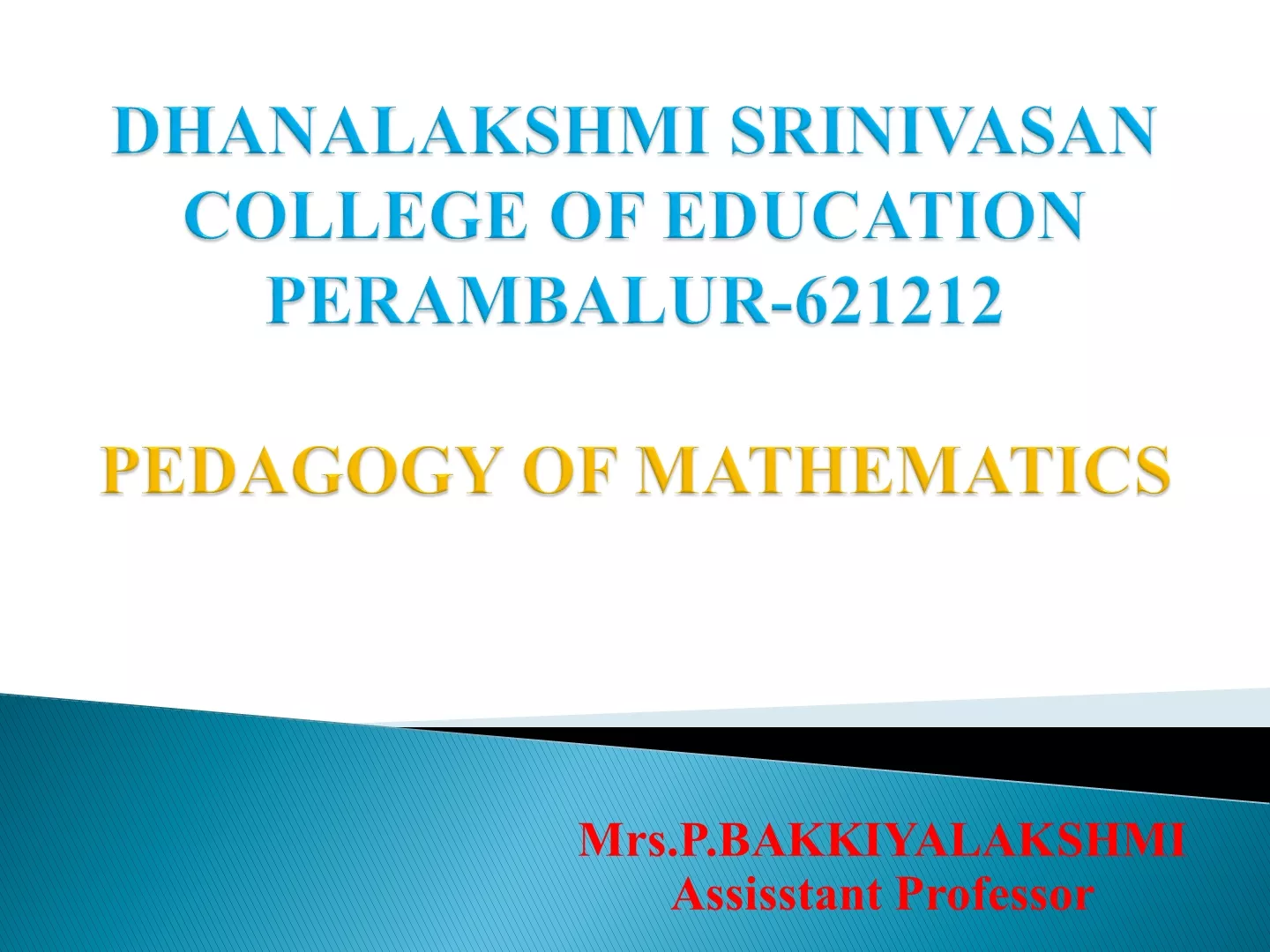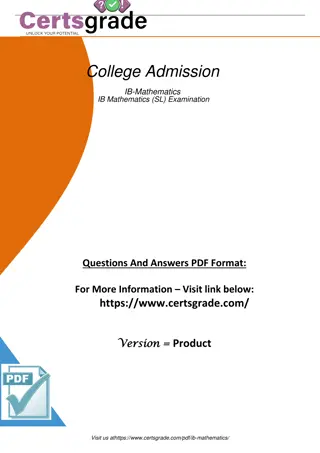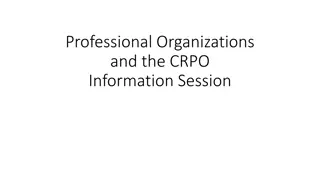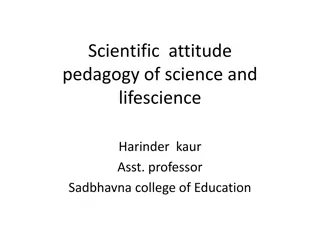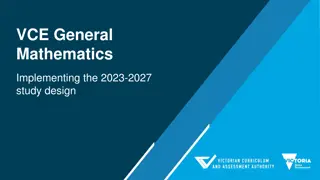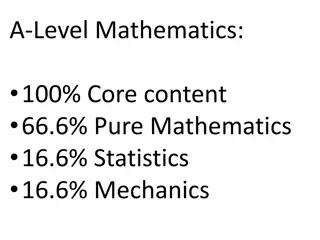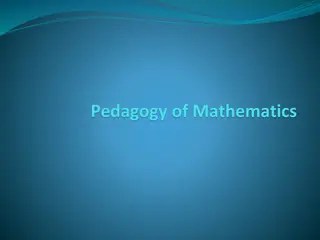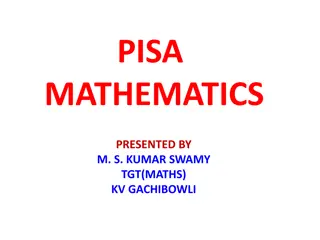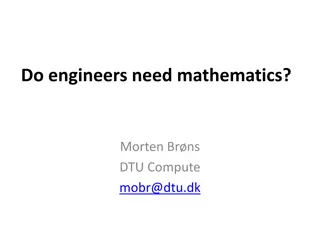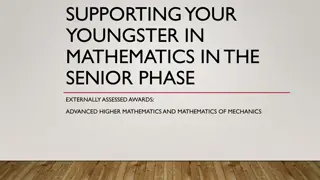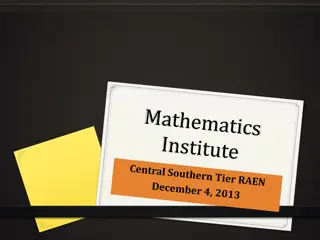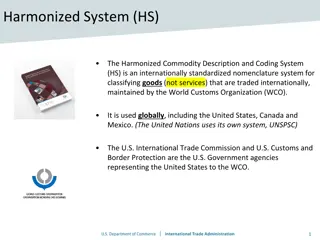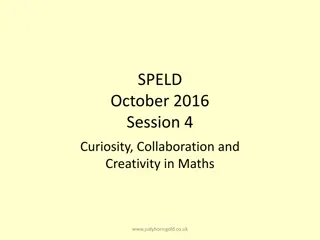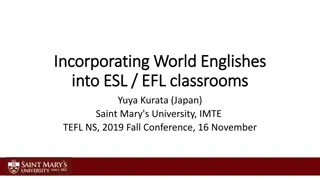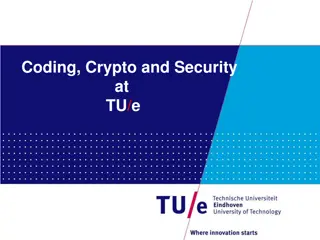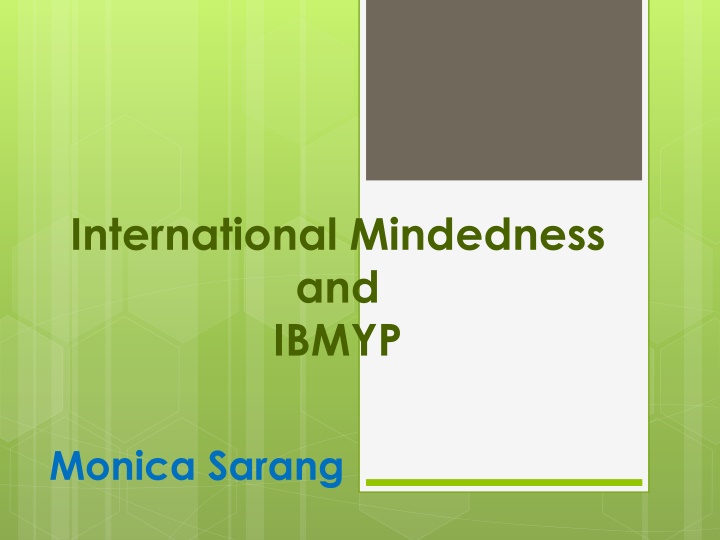
Promoting Internationally Mindedness in Mathematics
Analyzing the role of Areas of Interaction in teaching a math unit for internationally minded students, exploring definitions, criteria, and principles to foster global perspectives. The paper delves into challenges and opportunities in promoting an international mindset in Math within the IB MYP framework."
Download Presentation

Please find below an Image/Link to download the presentation.
The content on the website is provided AS IS for your information and personal use only. It may not be sold, licensed, or shared on other websites without obtaining consent from the author. If you encounter any issues during the download, it is possible that the publisher has removed the file from their server.
You are allowed to download the files provided on this website for personal or commercial use, subject to the condition that they are used lawfully. All files are the property of their respective owners.
The content on the website is provided AS IS for your information and personal use only. It may not be sold, licensed, or shared on other websites without obtaining consent from the author.
E N D
Presentation Transcript
International Mindedness and IBMYP Monica Sarang
My Professional Context My Role at Ecole Mondiale World School My Educational Experiences
The context of my paper: An analysis of the extent to which teaching a mathematics unit in the Middle Year Programme through the lens of Areas of Interaction , (which are now referred to as Global contexts) help internationally minded students. in developing
Structure What is IM? Some definitions Criteria to promote IM IB MYP and IB MYP Math Areas of Interaction (Global Contexts) Teaching and Learning in MYP Year 3 Assessing Challenges Looking for your feedback
Definitions Haden and Thomson (2008) IBO (From Principles to Practice 2010) Fenn and Hapgood (1999) Skelton (2006) Delors (1998)
Criteria for promoting Internationally mindedness in Math Being able To respect and tolerate other cultures, values, races, religions, national beliefs and traditions. To have a global perspective in Mathematics. To be able to understand others way of life and ethnicities. To be able to respect others point of view. To realize ones rights and responsibilities.
Criteria to promote Internationally mindedness in Math To be able to adapt curriculum both across and within each culture. To appreciate leadership that incorporates the values of internationalism. To have the ability to communicate ideas and ideologies of global importance with others. To be involved in problem solving on local community issues, national issues and world issues as well.
EMWS Criteria/Principles Mathematics curriculum should provide students with opportunities: To understand and appreciate global issues To present their own insights on global issues The content should ensure an opportunity for the students to reflect on universal values. To ensure that the students understand the value of their natural environment. To enable the students to understand the interconnectedness and the interdependence of their lives with the people of their country and the world at large All the above will include the attributes of the learner profile listed by the IBO: Reflective, Balanced, Caring, Inquirer, Knowledgeable, Open- minded, Communicator, Thinker, Principled
IBMYP:Middle Year Programme: MYP Programme- Fundamental concepts
IB Mathematics Curriculum Aims and objectives
AOIs/Global Context Definition List of AOI s (Areas of Interaction) Examples
Teaching and Learning Year 3 Unit: Speed Distance Time IDU: Geography Global Issue: To understand and appreciate global issues To present their own insights on global issues AOI: Environments and Community and Service Learner profiles: Reflective, Inquirers, knowledgeable
Teaching and Learning Year 8 Unit Money Guest Speaker: Deputy Agriculture Secretary Maharashtra Local Issue: Mass suicide by farmers of Marathwada EMWS Criteria for IM: To enable the students to understand the interconnectedness and the interdependence of their lives with the people of their country and the world at large AOI: Environments, Health and Social Learner Profiles: Caring, Reflective, Thinkers, open- minded, communicators
Assessment Rubric Criterion-referenced assessment Importance of descriptors and achievement level while assessing units
Level of Achievement Descriptor 0 and calculate speed, distance and time 1-2 issue and is able to calculate the speed only by using the given formula 3-4 reflect effectively on the issue and is able to calculate speed and time estimating the distance on his/her own 5-6 reflection and able to perform all the necessary operations to complete the mathematical problems. The student fails to reflect on the issue The student is able to reflect briefly on the The student is able to participate and The student is able to provide an in-depth
Challenges IBO should have workshops on implementation of IM Stability of teachers IBO teachers should share their units especially in subjects like mathematics Lack of common understanding The parent community Should activities on IM be assessed?
Conclusion In Indian Context Stakeholders Be positive as teachers. Importance of Unit planner
References Cambridge, J. (2000) International schools, globalization and the seven cultures of capitalism in Thompson, J. J. Hayden, M. C. (eds), International International improving teaching, management and quality, Kogan Page, London. pp 179 181 Delors (1998) International Education as developed by the International Baccalaureate organisation by Hill (2006) in Hayden, M., Levy, J., Thompson, J. (eds.) A Handbook of Research in International Education. Sage: London. pp 25-26, 27, 29 Hill, I. (2006) International education as developed by the International Baccalaureate Organization in Hayden, M., Levy, J., Thompson, J. (eds.) A Handbook of Research in International Education. Sage: London. pp 25-26, 27, 29 Hughes, C. (2009) International education and International Baccalaureate Diploma Programme: A view from the perspective of postcolonial thought ,Journal of Research in International Education, 8(2): 130 135 Haywood, T. (2006) A simple typology of International-Mindedness and Its Implications for Education in Hayden, M., Levy, J., Thompson, J. ( eds), A Handbook of Research in International Education. Sage, London. pp. 79 81, 86, 87 Hill, I. (2006) International education as developed by the International Baccalaureate Organization in Hayden, M., Levy, J., Thompson, J. (eds.) A Handbook of Research in International Education. Sage: London. pp 25-26, 27, 29
Fennes, H. and Hapgood, K (1997) Intercultural Learning in the Classroom, Cassell, London (From the handouts provided be Hayden, M and Thompson, J for the Bathe University course held in Mumbai, India on the 12th of March 2009) Hayden, M. C. (2006) International Education: The context , in Introduction to International Education. SAGE, London. pp 4 6 Hayden, M. C. (2006) International Schools and Parents , in Introduction to International Education. SAGE, London. pp 21 23 IBO (2009) Mathematics Guide IB, Cardiff. pp 1 5, 13 17, 42 44 IBO (2008) MYP: From principles to practices, IB, Cardiff pp 7, 10, 11, 13, 16, 20 21, 34. Skelton, M. (2006) International-Mindedness and the Brain: the difficulties of Becoming in Hayden, M., Levy, J., Thompson, J. (eds), A Handbook of Research in International Education. Sage, London. pp. 380 382 Thompson, P. (1998) Education for peace: The cornerstone of international education in Thompson, J. J. Hayden, M. C. (eds), International Education Principles and Practice. Kogan Page, London. pp 105 108, 116.

